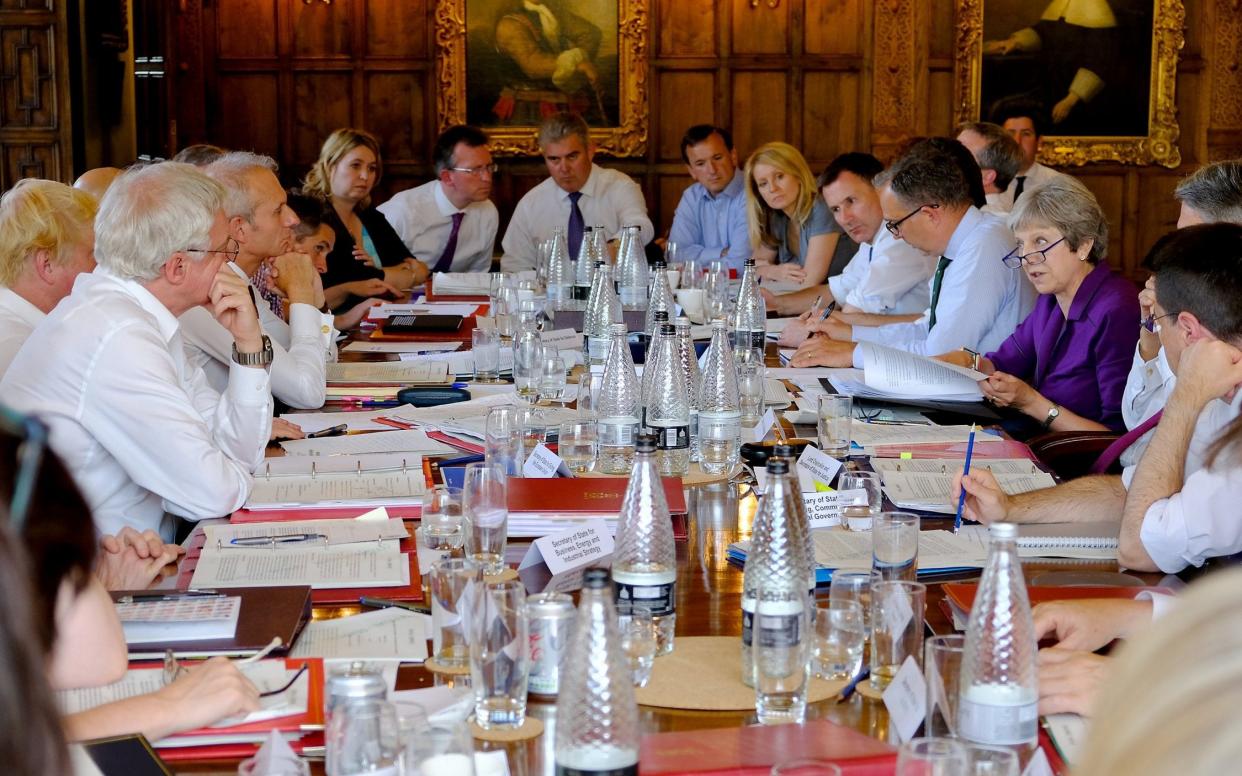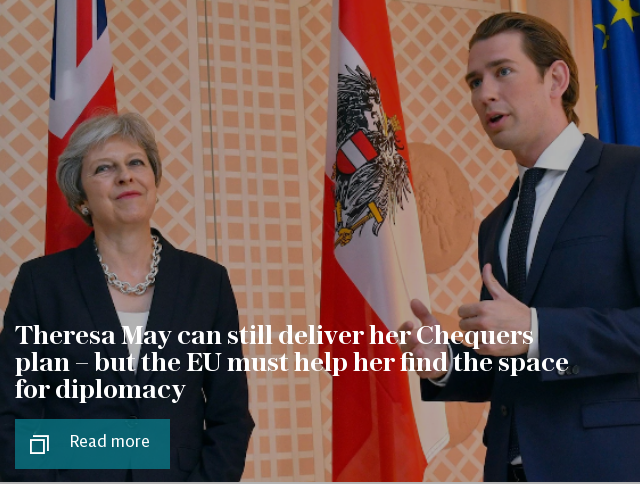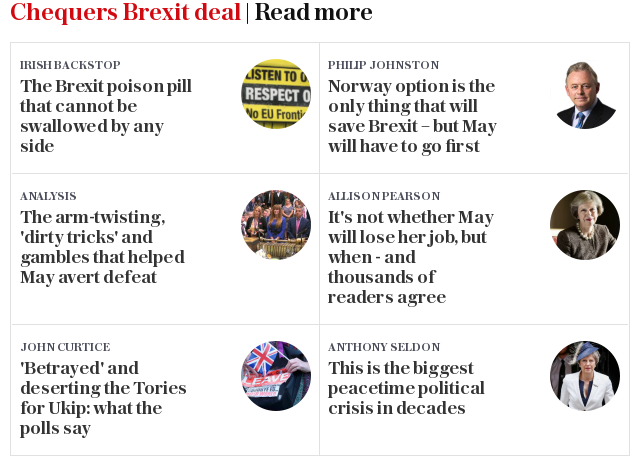The alternative pathways to Brexit: Theresa May's Chequers deal V the Canada Plus option

This is everything you need to know about the sometimes obscure details behind the two plans for Brexit:
Regulatory divergence
Chequers
- The UK would sign up to "a common rulebook", a technical way of saying that it would shadow the EU's regulations.
- MPs could decide not to pass further legislation from Brussels, but would have to accept the "consequences from breaking the UK's international obligations", which could make a cautious Parliament unwilling to do anything but swallow rules. The UK would not try to make itself more competitive by cutting regulation, maintaining a "level playing field" in areas like environmental rules.
Canada +
- The UK would agree with Brussels under a system of "mutual recognition" to recognise each other's regulators as sufficiently competent to ensure smooth cross-border trade after Brexit.
- Any disruption would be cushioned with an "outcome equivalence" agreement, whereby the two parties acknowledge that they are achieving the same results under different regimes. This would permit the UK to change its regulations more significantly.

Trade deal potential
Chequers
- The UK would exercise an "independent trade policy", retaking its seat at the World Trade Organisation.
- However having to follow EU standards, as Downing Street has conceded, "would not allow the UK to accommodate a likely ask from the US" to permit the import of American agricultural products made under different standards.
- The UK would theoretically be free to strike deals with countries outside of the EU. However, lack of flexibility in goods regulations and a bureaucratic proposed customs arrangement with the EU would limit Britain's attractiveness.
Canada +
- A Canada-plus deal would see the UK leave the customs union and avoid any common rulebook, so there should be no restrictions on negotiating full free trade deals with other countries.
- Unlike the Chequers proposal, Canada-plus gives British negotiators their best chance of negotiating lucrative free trade agreements with major economies such as the US and India, and potentially even China.
- It would also pave the way towards deals with rapidly growing Asian economies such as Indonesia.
Irish border answer
Chequers
- The UK intends to avoid a hard border by aligning with all EU rules "necessary to provide for frictionless trade", which will include measures like a "Facilitated Customs Arrangement" and a "free trade area for goods".
- All this is an attempt to avoid having to agree a customs union, which would leave Brussels formally in command of the UK's trade policy. But Michel Barnier remains sceptical about British proposals, and is pushing to bind the UK in more tightly.
- If talks on the Chequers-inspired customs partnership fail, the UK would under the terms of the December Brexit deal adopt the "Irish backstop," where Northern Ireland remains fully aligned with EU rules to prevent friction and creating a border down the Irish Sea.
Canada +
- Under a Canada-plus scenario, Britain would be outside the customs union but would have a comprehensive free trade deal with the EU, limiting the need for border checks.
- Trusted trader schemes, pre-registration arrangements and technological solutions, like number-plate recognition cameras to scan trucks, would reduce further any need for a "hard border".
- Such "creative" solutions would keep trade as "frictionless as possible".

Immigration
Chequers
- The UK intends to end free movement, but has yet to set out what it would have in its place.
- EU citizens will keep their current rights to move, live and work in the UK until the end of the transition period.
- Because the EU treats its cherished four freedoms as indivisible, it's highly likely that the UK will be forced under the Chequers plan to make further concessions and allow preferential treatment for EU citizens to those from the rest of the world, which would not be terribly different from free movement.
Canada +
- One of the major benefits of a Canada-plus deal is that the UK would have complete freedom on immigration policy, at the price of more limited trading access to the EU market.
- The UK would nail down aspects of post-Brexit movement of people between the UK and EU in a new framework, with its future immigration rules working around whatever is agreed.
- As under Chequers, the aim would be to reach an agreement on the rights of EU migrants in the UK and UK expats in the EU after Brexit.

Judicial independence
Chequers
- The "direct jurisdiction" of the European Court of Justice would end. Instead, British judges would have to pay "due regard" to the ECJ's previous rulings on areas covered by the 'common rulebook'.
- But in a formal dispute, the matter would be resolved by an arbitration panel. This panel will have to refer to the ECJ in the interpretation of EU law and is bound by what it receives.
- The UK and EU could also choose to resolve disputes through the WTO, but it won't be quick.
Canada +
- The Joint Committee, following the style set by the EU's free trade agreements with Canada, South Korea and all US trade deals, would be able to make binding decisions to resolve issues that arise between Brexit Britain and the EU, particularly in the area of trade.
- It will also be able to carry out joint monitoring and supervisory functions to identify emerging issues.
- Unlike under the Chequers deal, there would be no question of the ECJ being superior in any regard to British courts.

 Yahoo News
Yahoo News 
